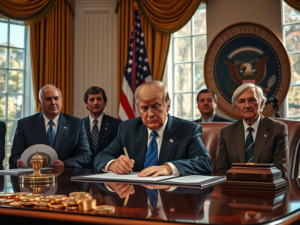Impact of SEC’s Withdrawal on DeFi Platforms Explained

On February 20, 2025, the U.S. Securities and Exchange Commission (SEC) announced the withdrawal of its appeal. They withdrew against a federal court ruling in Texas that had struck down its rule concerning crypto broker-dealers. This decision marks the end of a legal battle. It clarifies the SEC’s regulatory reach concerning decentralized finance (DeFi) platforms. It also affects other entities operating in the cryptocurrency market.
Backgroundw of the Case
In February 2024, the SEC introduced a rule aimed at expanding the definition of a “dealer” in financial markets. Under the new regulations, DeFi platforms, liquidity providers, and automated market makers with capital exceeding $50 million were to be classified as dealers, requiring them to register and comply with SEC regulations.
In response, a group of crypto firms and industry organizations sued the SEC, arguing that the commission had overstepped its legal authority. In August 2024, federal judge Reed O’Connor of the Northern District of Texas ruled in favor of the plaintiffs, stating that the SEC’s approach was “detached” from existing securities laws.
SEC’s Decision to Withdraw the Appeal
After initially filing an appeal against Judge O’Connor’s ruling, the SEC unexpectedly decided to withdraw it. While the commission has not provided an official explanation, experts speculate that the decision was driven by difficulties in defending the controversial rule in higher courts.
Industry Reactions
The SEC’s withdrawal of its appeal has been met with approval from the cryptocurrency community. Many industry representatives view it as a victory for innovation and the growth of decentralized finance without excessive regulatory interference. However, some experts caution that the lack of clear regulations could lead to legal uncertainty in the future.
Impact on the Future of Crypto Regulations
The SEC’s withdrawal of the appeal may indicate a shift in the commission’s approach to crypto regulation. Rather than pushing for broad, sweeping rules, the SEC might focus on more targeted regulations that consider the unique characteristics of different players in the crypto ecosystem. However, the absence of clear guidelines could push the U.S. Congress to take legislative action to establish a regulatory framework for cryptocurrencies.
The SEC’s decision to withdraw its appeal against the ruling blocking its controversial crypto broker-dealer rule is a significant moment in the history of U.S. digital asset regulation. While the crypto community celebrates this as a victory, the future of regulation in this rapidly evolving industry remains uncertain. Observing the actions of both regulators and lawmakers will be crucial in ensuring a balance between investor protection and fostering innovation.








 Bitcoin
Bitcoin  Ethereum
Ethereum  Tether
Tether  XRP
XRP  Solana
Solana  USDC
USDC  Dogecoin
Dogecoin  TRON
TRON  Cardano
Cardano  Lido Staked Ether
Lido Staked Ether  Wrapped Bitcoin
Wrapped Bitcoin  Hyperliquid
Hyperliquid  Wrapped stETH
Wrapped stETH  Sui
Sui  Chainlink
Chainlink  LEO Token
LEO Token  Bitcoin Cash
Bitcoin Cash  Avalanche
Avalanche  Stellar
Stellar  Toncoin
Toncoin  USDS
USDS  Shiba Inu
Shiba Inu  WETH
WETH  Wrapped eETH
Wrapped eETH  Hedera
Hedera  Litecoin
Litecoin  Binance Bridged USDT (BNB Smart Chain)
Binance Bridged USDT (BNB Smart Chain)  Ethena USDe
Ethena USDe  Polkadot
Polkadot  Monero
Monero  Bitget Token
Bitget Token  WhiteBIT Coin
WhiteBIT Coin  Coinbase Wrapped BTC
Coinbase Wrapped BTC  Pepe
Pepe  Uniswap
Uniswap  Aave
Aave  Pi Network
Pi Network  Dai
Dai  Ethena Staked USDe
Ethena Staked USDe  Bittensor
Bittensor  OKB
OKB  Internet Computer
Internet Computer  BlackRock USD Institutional Digital Liquidity Fund
BlackRock USD Institutional Digital Liquidity Fund  Aptos
Aptos  NEAR Protocol
NEAR Protocol  Cronos
Cronos  Ethereum Classic
Ethereum Classic  Jito Staked SOL
Jito Staked SOL  Ondo
Ondo